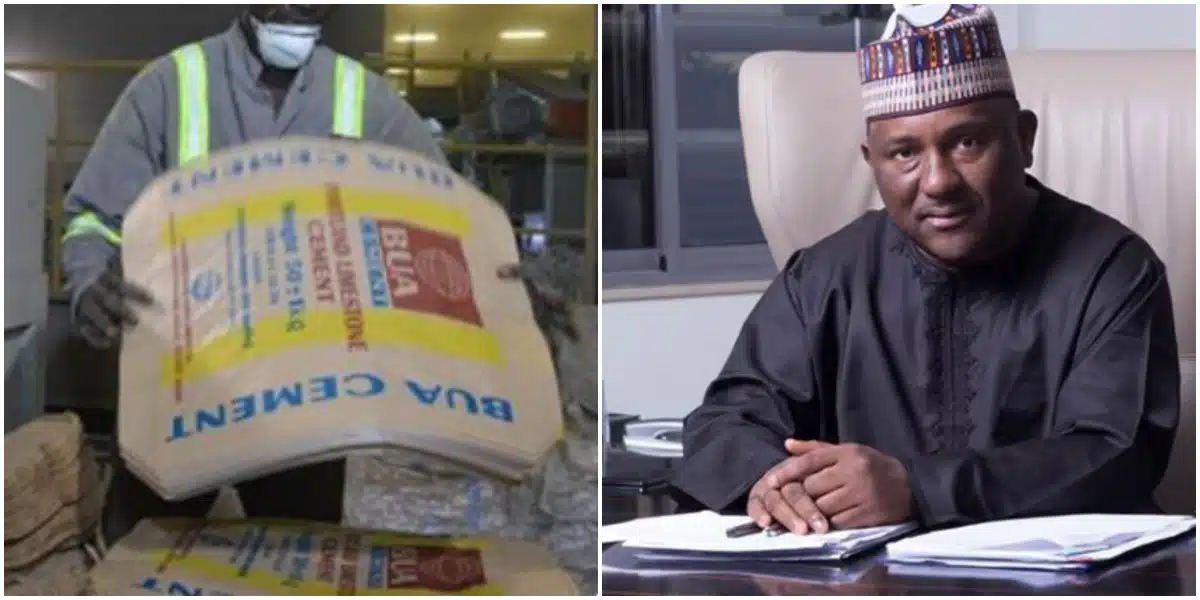- Playloaded Song Of The Week
 Promoted By Playloaded
Promoted By Playloaded
 Playloaded Trends
Playloaded Trends
 Music Promotion
Music Promotion
Playloaded.com / Business, Viral Gist / “We Sold Our Cement at N3,500 Per Bag, but Marketers Were Selling to Nigerians at N8,000 – BUA Chairman Rabiu


According to Rabiu, despite BUA Cement’s intention to make cement more affordable for Nigerians, the company’s efforts were significantly undermined by dealers who sold the cement at much higher prices, reaching up to N8,000 per bag.
Rabiu explained that BUA Cement had sold over a million tons of cement to dealers at the targeted price of N3,500 per bag, aiming to make the product more accessible to the public.
Instead of passing the savings on to consumers, these dealers sold the cement at prices ranging from N7,000 to N8,000 per bag.
Rabiu noted that BUA Cement struggled to regulate the dealers who were benefiting from the high profit margins.
He also cited the devaluation of the Naira and the removal of fuel subsidies as additional obstacles that made it difficult to maintain the subsidized price.
In his words:
“So, a lot of the dealers took advantage of that policy. Rather than pass the low prices to the customers, they were selling at even double the price we sold to them.
“Some were selling at N7,000 and 8,000 per bag. They made a lot of money with a very high margin. I think we had sold more than a million tons at N3,500 before we realised what the dealers were doing.
“And then, because of the issues that Nigeria faced at the time about the devaluation of the Naira last year and the removal of fuel subsidy, we could not continue that policy.
“We wanted that price to stay at that level but dealers refused. So, we could not sustain that simply because we did not want to be in a situation where we are subsidizing dealers.
“I’m referring to the point when the foreign exchange rate moved from about N600 to maybe N1,800 to the US Dollar. So, it became even more challenging and more difficult for us to actually sustain that price policy.”
Links: (0) (1) (2) (3) (4) (5) (6) (7) (8) (9)